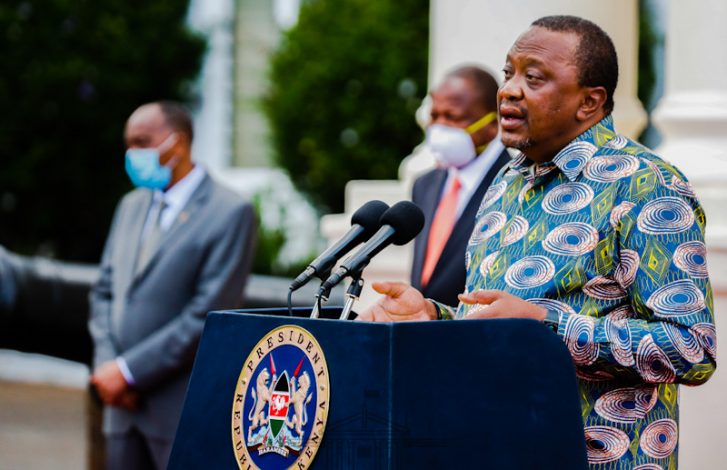Kenya on Monday extended its 9pm to 4am nationwide curfew for another 30 days and banned the sale of alcohol in restaurants and eateries across the country as a containment measure to curb the spread of COVID-19.
“Kufunga nchi haitasiadia (closing the country won’t help) the government cannot be on the door of every Kenyan, the responsibility is ours,” President Uhuru Kenyatta said during his Tenth Presidential address on COVID-19 situation in the country.
“There shall be no sale of alcoholic drinks in eateries, restaurants across the territory of the Kenya effective Monday midnight for 30 days,” said President Kenyatta.
Monday Kenya recorded 440 new COVID-19 cases after testing 3,197 samples, raising the country’s caseload to 17,975. The Ministry of Health further said from the new cases, 437 are Kenyans while three are foreigners, with 286 males and 154 females.
Today 440 have tested positive for Covid-19 out of 3,197 samples tested in the last 24 hours, bringing to 17,975 the number of positive cases. Our cumulative tests are now 279,612. #KomeshaCorona
— Ministry of Health (@MOH_Kenya) July 27, 2020
Five more patients succumbed to the disease, bringing the number of fatalities recorded in the country to 285.
According to the Head of State, “My greatest concern at the moment is the aggressive surge of infections among young Kenyans who are in turn infecting their elders. Contact tracing of the recent surge of infections indicates that our socialising without regard for protective behaviour, particularly in environments serving alcohol, is becoming a high-risk factor.”
Last week, Pubs, Entertainment, and Restaurant Association of Kenya (Perak) national chairperson Alice Opee had said if approved plans ban the consumption of alcohol inside their premises would result in loss of revenues to the tune of KSh50 billion.
However, the President noted that “We are fortunate that our Case Fatality Rate, at 1.6%, is much lower than the global average. Perhaps it is this relatively low rate that is giving some Kenyans false comfort that this is not a serious health risk to them and their families.”




